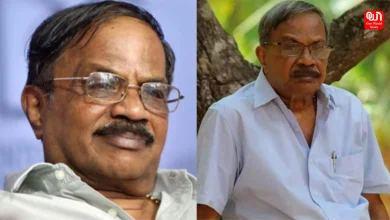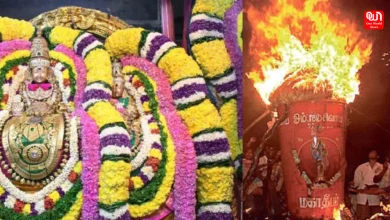Should Cinema Have A Social Responsibility?

Should Cinema Have A Social Responsibility?
Indo-American Friendship Association (IAFA) held a panel discussion in the Gulmohar Hall at India Habitat Centre recently on the topic ‘Should Cinema have a social responsibility?’
The panel included Muzzaffar Ali, Director of Umrao Jaan, Mr. Pavan Verma, Member of Parliament-Rajya Sabha, Ms. Aruna Vasudev, Founder-President of Network of the Promotion of Asian Cinema (NETPAC), Mr. Nila Madhab Panda, Director of I am Kalam, Suresh Kohli, Documentary Film Maker and Ms. Geeti Bhagat, CEO of Bhagat Group & Earth Foundation.

Ambassador Surender kumar with his opening remarks
Ambassador Surendra Kumar came first to introduce the panellists and to initiate the discussion. He said, “In 2013, the film industry came out to be a 20 billion dollar one. Directly or indirectly about 10 million people live on entertainment related job. It’s a huge industry”. He said that youngsters make the film stars their role model, they imitate them in various aspects. That’s when the problem starts, if you want to call it a problem, if people start to blindly follow film stars. He talked about the films made in the 60s and said that those films had social relevance. Films like Mother India, Sadhna, Shri 420, Awara, Pyasa etc. talk about social issues like corruption, how crime breeds in slums etcetera. He said that he doesn’t mean to say that today’s film makers don’t make films with social relevance but if one has to look at the bigger picture then one has to say that the number of films have decreased significantly. He said that he invited many actors from the industry but none came as they didn’t want to share their views. He then threw open the discussion to the panel.

Aruna Vasudev
Mr. Nila Madhab Panda was the next speaker. He said that he didn’t want to make cinema until the time when a television came to his village and three villagers sat together in front of that tiny television. He then realised the power of the medium. He said that he doesn’t understand why cinema, for past few years, has become only about box office and entertainment. He said, “A nation where people are obsessed with cinema, where people are inspired and motivated by films. So, I think we should have certain responsibilities towards telling a story, which is not the case today. Cinema no longer is an art form. It has become a product i.e. at any cost you want to sell it”. He said that it’s not to say that people don’t make good cinema. There are good cinemas like Munna Bhai MBBS, Paan Singh Tomar etcetera. But these are few and far. He concluded his speech by saying that we should be proud of our cinema. It’s a great medium to communicate. It heals people out of their miseries. They romanticise from a bollywood movie. The only thing is, the industry should have a certain moral code.

Geeti Bhagat
Pavan K. Verma was the next speaker. He initiated his speech by saying, “Let us say that Bollywood is one of the most impactful mediums we have in the creative field. By impact I mean impact it can make on a large number of people on a continuing basis. Let us also assume that Social Responsibility is like mothers will. You cannot question that. When you correlate the two, frankly I begin to get deep apprehensions”. He further said that social responsibility raises many questions. Who defines it? Today we have a moral brigade which is trying to impose through the prism of their half literate knowledge of our country. Standards which they equate directly with Social Responsibility. How you should behave? How should people from the opposite sex behave? What is permissible and what is not? So once you begin to think of Social Responsibility, it opens up a Pandora’s Box. The second question is who will enforce it? Who is the arbiter? We have a censorship board, which I also question in many of its choices, but if you add to that the phenomena of Social Responsibility that could damage the creativity of an artist. He said that he is not against Social Responsibility. India had great films in the era of idealism, after the independence, which were socially relevant and entertaining too. He also pointed out the recent trend of remakes that bollywood seems to be engulfed into. He said that there are many cinemas that are a complete rip off of Hollywood. Not just story but dialogues, musical scores etc. It’s a tragedy. At some point we were the yardstick of excellence. For a country that was the yardstick of excellence, to reduce bollywood to “a great mass of uncritical mimicry, without the originality of thought” is a tragedy.

Muzaffar Ali chairing the event
Aruna Vasudev was the subsequent speaker. She said, “I come from a different background. I wasn’t a film maker although I studied film but I was always a writer and a commentator on cinema”. She said that she was never interested in bollywood after the decade of 60s. For her “cinema has a huge social responsibility whether you like it or not. But most people making films in bollywood don’t even think like that and that is partly because of the system we have put in. Because the ones who control the release of the cinema are the distributor, not even the financer or producer”. There is so much pressure and demand on the film maker that it becomes difficult for them to churn out good cinema. She praised Aamir Khan for his socially relevant films and entertainers at the same time. She said that cinema takes you out of your world and introduces you to a different world altogether and that is a very important thing. The cinema of earlier times was exactly like that, thought provoking. Changing your view about the world you live in. But she had hope from some of the film makers that are churning out good-socially relevant cinema.

Nila Madhab Panda
Suresh Kohli came with a bang saying, “What I am about to say is going to shock the panellist. I am a great defender of mainstream cinema. I want to know, in which country a social change has been brought about by cinema? Secondly I don’t really understand what is ‘Social Responsibility’, in terms of cinema. On one hand you say cinema should reflect reality. When the same cinema reflects reality, we run it down”. He then put forward pertinent questions, questioning the very fabric of the debate. He questioned, “Did Indian cinema encourage prostitution? Did Indian cinema encourage corruption in politics? Did Indian cinema encourage rapes? Is it the mainstream cinema or any other cinema? Who brought about these things?” He said that all this talk about Social Responsibility is futile. We don’t allow socially responsible films to be made or released.

Suresh Kohli
Geeti Bhagat was the concluding speaker. She made her maiden statement as, “People at Beverly don’t throw their garbage. They make it as television shows” the famous words of Woody Allen. She said that the audience comes in different size, age and it’s the cinematographer’s job to make them cry in unison, laugh together or to perhaps make them angry. She further adds, “Could we imagine millions of angry people going out of cinema halls? People always say that cinema is a mirror to the society. Is this the mirror? Or the image creating the reality? I believe it is”. In conclusion she said that cinema changes the reality in a very-very powerful way and we need to accept that. At the very end she quoted Steven Spielberg, “Delicate balance of mentoring someone is not creating them in your own image but giving them the opportunity to create themselves”.

Prof. R.K. Verma with his speech
Picture Credits : Neel Kamal Pandey, OneWorldNews






